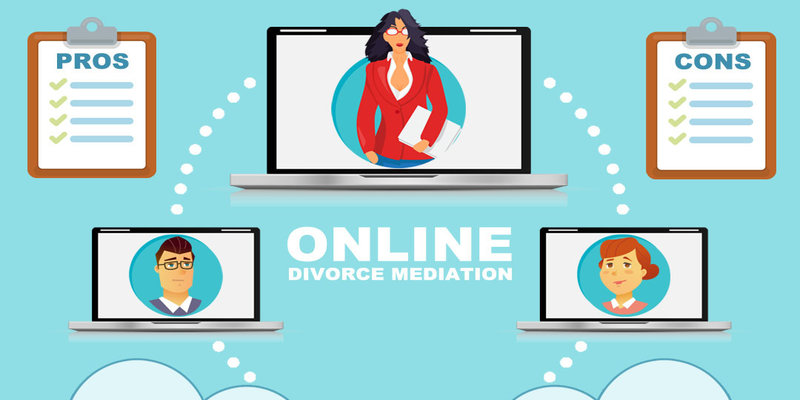If you find yourself starting the process of divorce or considering starting the process, and you believe you and your spouse could amicably resolve your differences without protracted litigation, mediation offers an excellent alternative – particularly given that access to the courthouse will be at best unpredictable for the rest of the year.
Mediation typically takes place in the office of the mediator. However, given the COVID-19 reality, most mediations have moved online. In many ways, online mediation and in-person mediation work similarly – the mediator still sees you, and you see the mediator. All documents would likely be provided electronically in advance in a regular mediation and would be done online as well.
However, online mediation does present some different issues to consider in advance.
First, selecting a mediator becomes easier because you and your spouse do not have to physically travel to see the mediator. In fact, depending on your county local rules, you can access more mediators online.
Second, if you and your spouse still live together, you will have some privacy issues to resolve. Typically, during mediation, the mediator will meet separately with each spouse before having a joint session. Indeed, a mediator might decide that the best outcome would happen without joint sessions. So, if you both still live in the same residence, how will that work? You, your spouse, and the mediator will need to agree on a way to assure that only one party is in the house and online with the mediator to assure truly private conversations.
If you and your spouse do not live together, the worry of the other “spying” during a session disappears, but you still have to assure both of you are alone. In an in-person mediation, the mediator easily isolates the parties. But online, the mediator cannot easily isolate you from the family members you might have in your residence. You, your spouse, and the mediator would all have to agree to remove any of those influences during the process so it truly represents what happens in an in-person mediation.
How does a mediator handle a joint session online? If the mediator uses Zoom, for example, the mediator can have everyone on the screen at the same time, hearing and seeing everyone. If the mediator wants a solo session at any point, the mediator can pause the audio and video for the other spouse.
As you can see, it is fairly simple to translate in-person mediation into online mediation. During these unusual times, if you are worried about litigation time or cost, or simple uncertainty, and you feel you can work amicably with your spouse to a resolution, you should definitely consider the benefits of online mediation.
If you have questions about online mediation and divorce, contact us, our divorce mediation attorneys in Creve Coeur can help.
